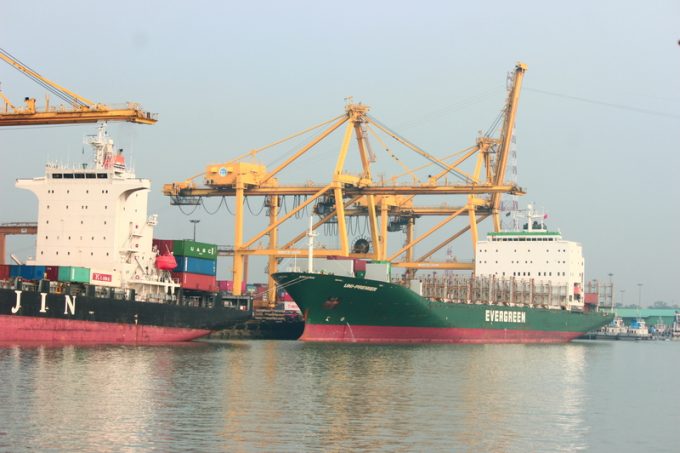Volume surge and an early peak season? 'Don't celebrate too soon,' warning
While this week’s announcement of a new 90-day window/reprieve on US-China reciprocal tariffs had carriers ...

Chittagong Port is facing the worst situation in its history, with more than 40,000 teu lying in yards for nearly two weeks, and more than two dozen vessels at the port area for over a week.
Pressure has grown since Eid-ul-Azha, and lockdown-linked closure of factories and ...
Bad news for shippers as wave of transpacific rate increases continues
No deals with carriers, say Houthis – Red Sea safe for non Israel-affiliated ships
Rapid transpacific capacity build-up continues – can USWC ports handle it?
Schenker's Shirley Sharma Paterson moves to K+N as global head of sales
Red Sea crisis has driven most new capacity into extended Asia-Europe trades
Carriers on the hunt for open tonnage again as transpacific rates soar
Dates to watch for in the latest chapter of TACO's tariff travail
Crew forced to abandon ship in latest fire on vessel carrying EVs

Comment on this article